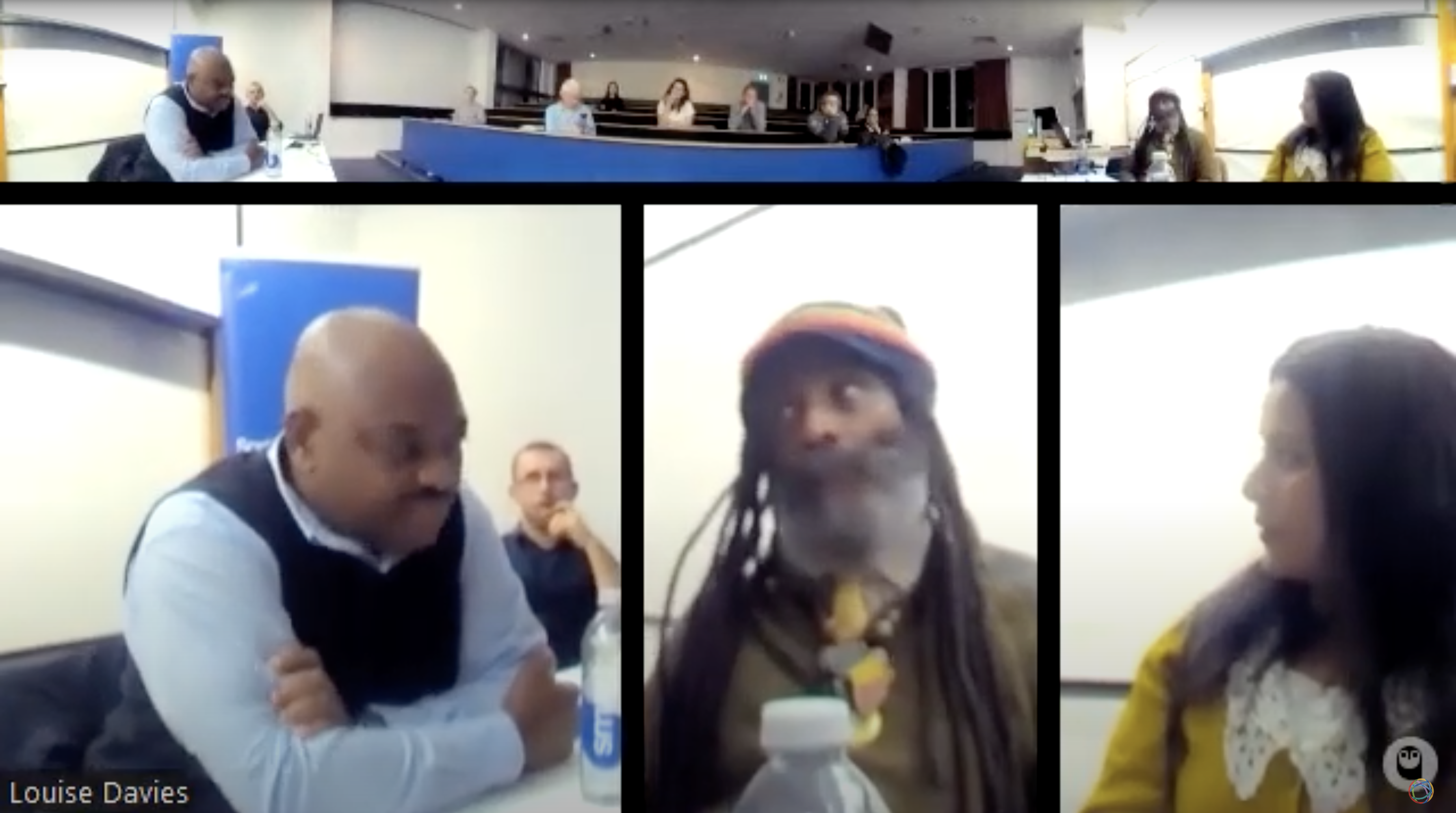Should reparations be part of Scotland’s approach to global affairs?
The following article is republished from Scotland’s International Development Alliance and was written on October 30, 2023.

As part of Black History Month, Scotland’s International Development Alliance held an event to delve into the role of reparations in Scotland’s approach to global affairs.
Our panel included Dr Yonah Matemba, Scottish Malawi Partnership & University of the West of Scotland; Councillor Graham Campbell, Glasgow City Council; Lewis Ryder-Jones, Advocacy Adviser, Oxfam Scotland; and was chaired by Mariam Ahmed, Amina Muslim Women’s Resource Centre.
“Not a crime that’s past, it’s a crime that’s present”
Yonah pointed out that reparations encompass more than monetary compensation; they symbolize an attempt to make amends, seeking to repair the damage caused by historical injustices. It’s a journey that should encompass not only financial payments but also atonement. Comparing this to the impact of European Union funding in places like Malta where we can see the tangible results, such as funded infrastructure projects. This kind of visible support is not seen in our supposedly deep relationship with Malawi.
Graham further emphasized that reparations mean reparatory justice, focusing on redressing the damage caused. The historical context is vital; Scotland has already committed to compensating for loss and damage, so why not address the ongoing loss and damage stemming from African chattel slavery, which has long been considered a crime against humanity? Colonialism continues to impact the world, perpetuating through neocolonial economic structures and systems – the crimes are not just in the past.
Honest conversations
Honest conversations are crucial. Yonah called for an open dialogue where people come to the table acknowledging their structural location. When thinking about Scotland’s relationship with countries in dire financial straits like Malawi, we need to question the sustainability of such relationships. If we are friends with people in Malawi (and we are) and we come together in a spirit of atonement, wouldn’t we want to move beyond the £15 million annual international development assistance which could be seen as tokenistic?
Graham talked about the challenge of obtaining an apology from UK Government leaders. His view is that if Scotland seeks independence, it must confront its historical legacy and extend commitments to loss and damage to other forms of reparations.
Getting comfortable with discomfort
Unlearning is an essential part of getting to grips with our past. Lewis and organisations like Oxfam are in the early stages of understanding the implications of unlearning their preconceived notions about the British Empire and its role in slavery. Acknowledging our position and power and feeling discomfort are part of the journey towards rectifying historical injustices.
The education gap
The lack of comprehensive education on slavery and colonialism is a significant shortcoming. Mariam noted that slavery was often seen as a problem limited to the United States, creating a gaping hole in our learning. Glasgow Council has taken the initiative to address this by introducing a non-compulsory module on slavery studies into the modern studies curriculum, aiming to shed light on Scotland’s historical involvement. Yonah asked why there is trepidation in discussing decolonization by white people. It’s vital that people of all backgrounds participate in these conversations and address the lingering effects of colonialism.
Development aid or reparations?
In her opening remarks Frances Guy, SIDA Chief Executive, pointed out that development aid cannot be a universal remedy for past wrongs. Development funds should be directed to the world’s poorest who may be in countries where the UK did not have a direct colonial relationship. Reparations entail acknowledging the historical injustices that have paved the way for Scotland’s relative prosperity. Yonah said that Scotland should engage in a more profound conversation about what is needed, with diverse voices sharing their lived experiences. Graham questioned the efficacy of development aid, suggesting that it may be tokenistic given the limited financial resources. Instead, the focus should be on prioritising countries that have endured the most damage, investing in areas like healthcare and education, and even subsidising free tertiary education in these nations. There is a need to decolonise the way funds are distributed.
Empowering African leaders
Graham said that we need to learn and understand genuine African culture, civilization, and philosophy to combat stereotypes that sustain racism (here and in Africa). Graham and Yonah both talked about the importance of enabling African leaders to engage in meaningful discussions and decisions. In the international arena, Pan-African unity is crucial for enforcing an agenda of reparations, and lessons from initiatives like CARICOM’s ten point list for reparatory justice can guide the way.
Scotland’s role in reparations
The panellists agreed that Scotland has a unique opportunity to engage in an honest dialogue on reparations. It’s a chance to address uncomfortable historical truths, acknowledge the impact of colonialism, and rectify the ongoing injustices in the world. Lewis said that Scotland’s key role is to open up the political space for the discussion. This is something that iNGOS can support too. Graham felt that Scotland’s money could potentially be used to support a reparatory justice movement.
This meeting is a first step in starting a conversation towards a more comprehensive understanding of reparations as a critical step in the journey towards justice, atonement, and healing. There is an opportunity for Scotland to take a leading role in dismantling the lasting impacts of colonialism and contributing to a more just global community, and we look forward to continuing the discussion.
Watch the discussion below
